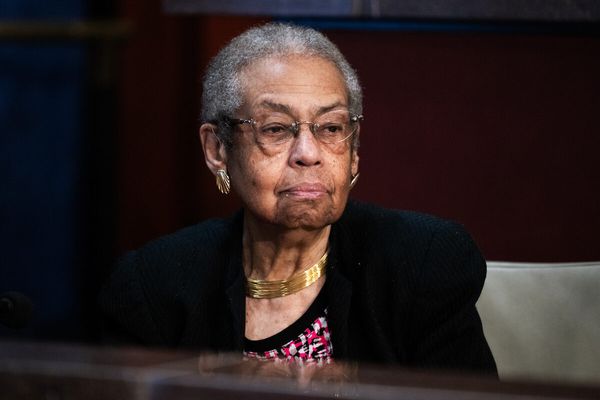The campaigning husband of tragic Irene Teap has blasted the Government - saying it has blood on its hands over his wife's death.
Two laboratories admitted in the High Court that they were in breach of their duty when they each failed to report abnormalities in Irene's smear tests - she later died of cervical cancer.
She passed away aged 35 in July 2017, after being diagnosed with stage 2 cancer in September 2015 - she had received negative smear test results in 2010 and 2013.
READ MORE: Stephen Teap opens up about raising two young sons alone while dealing with grief
Her family settled its High Court action against the Health Service Executive and the two laboratories.
Her widower, Stephen Teap, and their sons Oscar (9) and Noah (7) settled their legal claims for personal injuries, severe psychiatric upset, loss and damage.
And Stephen said: “The blood of my beautiful wife and the incredible friends I have made who have passed away is on the Government’s hands and those politicians who failed to listen."
He claimed his wife’s death was caused or permitted to be sustained by the defendants’ negligence and breach of duty.
Outside of court, Mr Teap said he has dedicated the last four and a half years to seeking the truth for his late wife.
He said Irish women deserve a properly run and well-funded cervical screening programme.
He acknowledged hundreds of thousands of lives have been saved by the scheme.
Mr Teap called for mandatory open disclosure to be put into law so doctors are obliged to tell the truth.
He said it was a political decision to outsource the screening of cervical smear tests to laboratories abroad and to choose “price over quality".
Texas-based Clinical Pathology Laboratories Incorporated admitted it was in breach of its duty to Ms Teap in failing to report her 2010 cytology sample as abnormal.
Had this been picked up at the time, it said in its defence, it is likely she would have undergone treatment and the pre-invasive condition would have been curative.
The admitted breach “caused and/or contributed to the death” of Ms Teap, the laboratory said.
Medlab Pathology Limited, with a registered office in Sandyford Business Park, Dublin, admitted a breach of duty in not reporting her 2013 smear sample as abnormal.
Had it recorded that high-grade cells could not be excluded, Ms Teap would have been referred for colposcopy and, on the balance of probabilities, she would have been diagnosed in October 2013 with stage 1B1 cancer, it said in its defence.
If this had happened, her five-year survival rate would likely have been 89 per cent rather than 66 per cent when she was actually diagnosed in September 2015, it said.
The HSE admitted it was primarily liable, but denied it was vicariously liable, for the acts or omissions of the laboratories. It said it was entitled to a full indemnity from them.
The HSE accepted Ms Teap should have been told of the results of a retrospective audit of CervicalCheck.
Mr Teap said he heard from media reports in April 2018 that a retrospective audit had been carried out of smear slides of women who developed cancer and who had been tested under CervicalCheck.
He told the High Court he “pretty much lost my vision” when he was informed the next month that abnormalities were found on reviewing Ms Teap’s slides as part of the audit.
He alleged Ms Teap’s consultant gynaecologist had been informed about the review results nearly a year earlier, some three weeks before Ms Teap’s death.
When told she had cancer and would die, she had asked “over and over… How did this happen? I did everything right”, he told the court. The answer given was that there were limitations to screening programmes, he said.
Mr Teap said he felt the HSE obstructed her ability to seek answers and justice for herself. It wasn’t until three weeks ago, when the defendants altered their defense to admit some liability, that “we got our answer” to her questions.
Mr Teap said justice for his late wife was “preventing the laboratories and the HSE from burying the truth along with her”.
He said he now knows that if the slides were read correctly “she would be alive today”.
Approving the settlement, for which no further details were disclosed, Mr Justice Paul Coffey said the facts of the case were “dark and disturbing”. He expressed his sympathies to Ms Teap’s family.
As part of the settlement, the two boys will each receive €100,000 solatium, a statutory compensation, to be paid to them when they reach adulthood. The court heard other relatives had waived their claim to solatium in favour of the boys.
READ NEXT:
- CervicalCheck campaigner Stephen Teap makes heartbreaking tribute to wife Irene during trip to Legoland with sons
- Women associated with CervicalCheck group refused treatment by clinicians as one claims she was 'treated like a leper'
Vicky Phelan's father tells of 'beautiful tributes' to hero daughter
To get see the latest headlines, visit our homepage







